用剩下的食用油,应该如何处置?
How to Dispose of Cooking Oil
Some of the best foods are made with cooking oil, but cooking oil can be a mess to clean up. Once the oil has cooled, decide if you want to throw it away, reuse it, or donate it. Store the cooking oil in a sealable container before you toss it in the trash, set it out for curbside pick up, or drop it at a local restaurant for recycling. For proper disposal, remember to keep the oil out of your sink.
Method 1: Putting Oil in the Trash
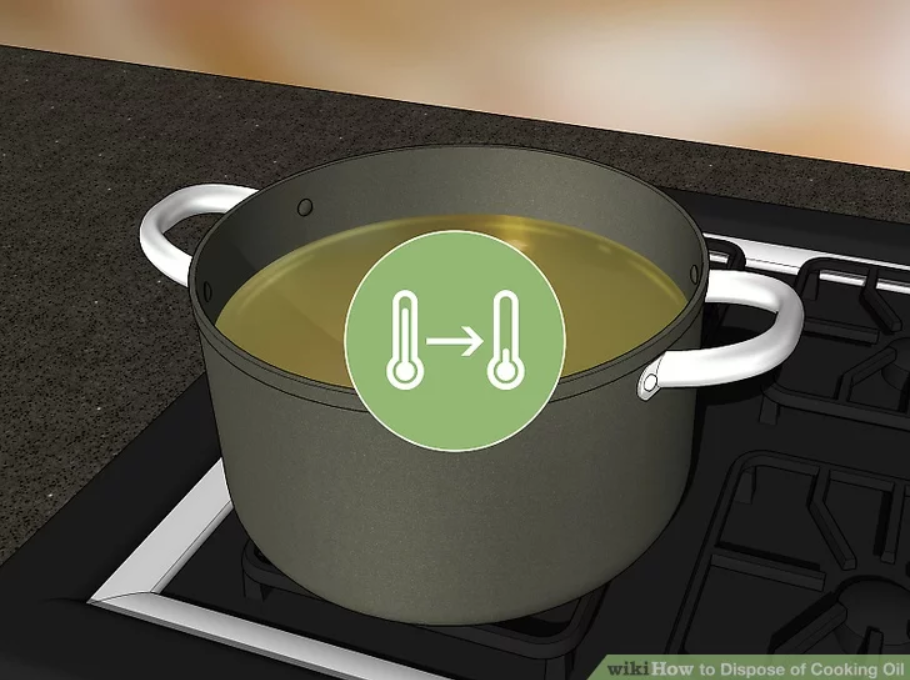 1. Cool the cooking oil before you handle it.
1. Cool the cooking oil before you handle it.
To reduce the risk of accidentally burning yourself, let the cooking oil cool completely before you dispose of it. Never lift heavy pots full of hot oil or pour the hot oil into the trash. Depending on how much hot oil you have, you may need to wait a few hours for it to cool.
• If you have to, you can leave the oil out overnight so it comes to room temperature.
• If you only have a small amount of cooking oil left in your pan, let it cool and then wipe it up with a paper towel.
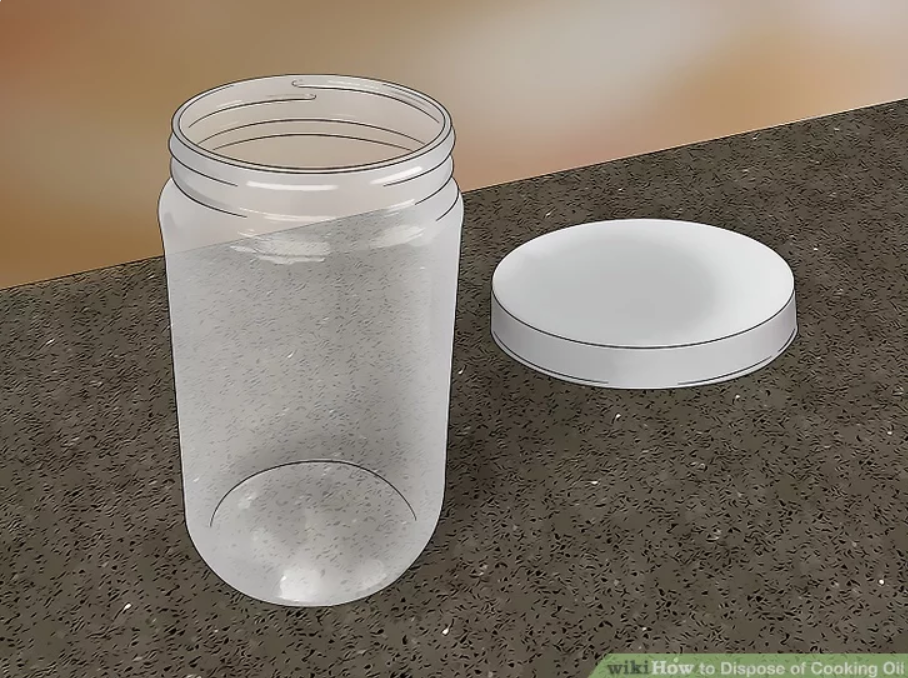 2. Choose a non-breakable container with a resealable lid.
2. Choose a non-breakable container with a resealable lid.
If you want to reuse the oil, ensure that the container is clean. While you can use a glass container, it could shatter if you drop it. Plastic containers with screw tops such as peanut butter jars are great cooking oil containers. Remember to label the container to prevent someone from accidentally using the oil.
• If you are not planning on donating your oil or reusing it, you can also cut the top off of a soda can and pour the oil into that.
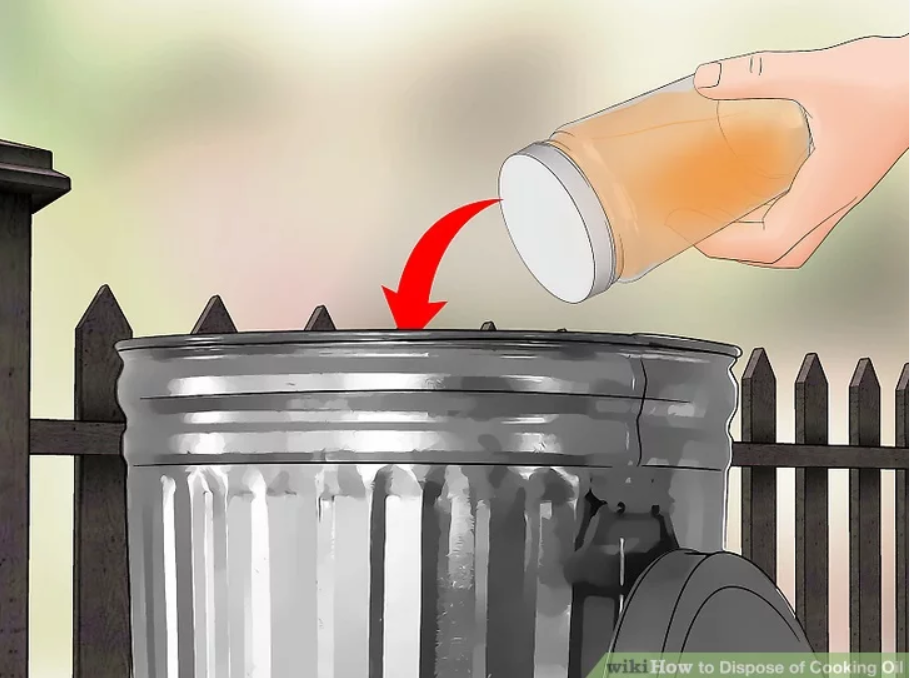 3. Toss the container of used oil in the trash.
3. Toss the container of used oil in the trash.
Seal the container with the used oil and place it in your trash can. Avoid simply pouring the oil into the trash can because this can make a mess and attract rodents.
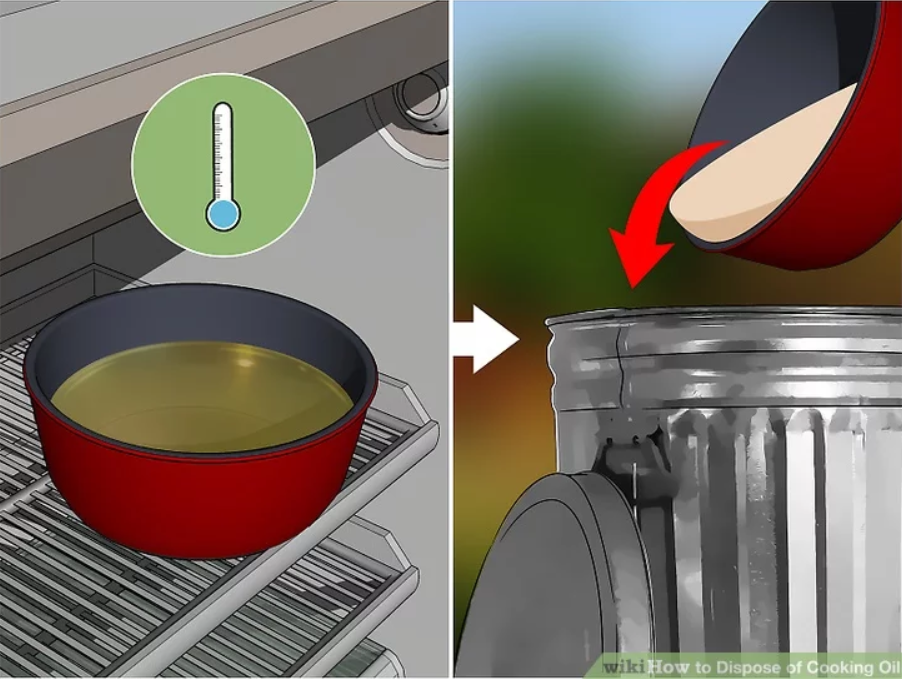 4. Freeze and scoop the oil into the trash.
4. Freeze and scoop the oil into the trash.
If you don't have a resealable container, you can set the container with the oil in the freezer. For example, put an old can full of oil in the freezer for a few hours. Once the oil is hard, use a spoon to scoop the oil directly into the trash can.
• You can also do this with a mug. Just wash the mug out with soapy water once you've disposed of the cooking oil.
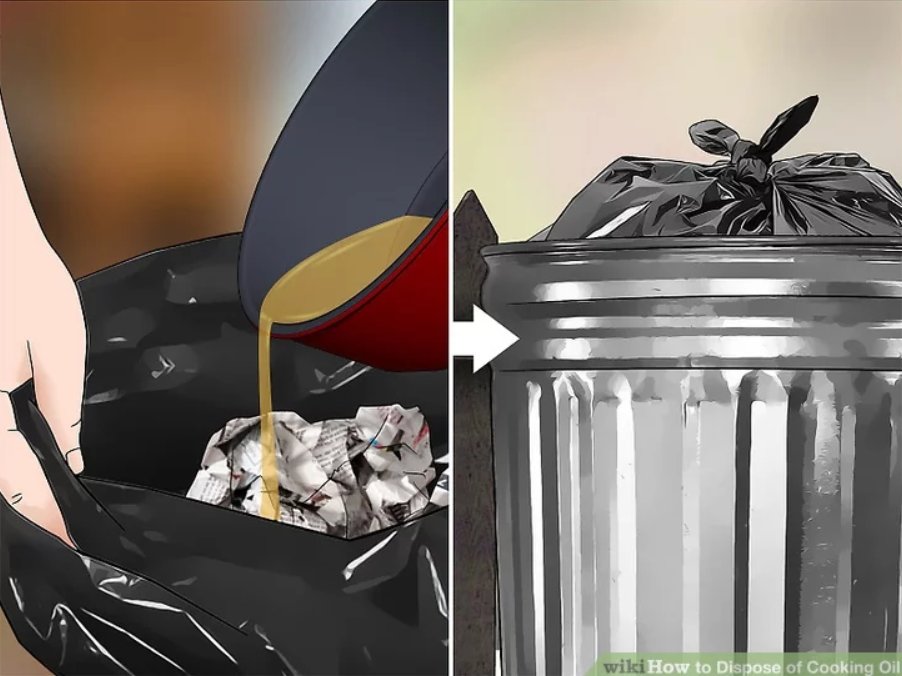 5. Pour the cooled oil into a plastic trash bag.
5. Pour the cooled oil into a plastic trash bag.
Take a plastic bag that already has some waste. For example, you can use a bag that has old paper towels, veggie scraps, or tissues. Pour the cool oil directly into the bag so the trash and scraps soak up some of the grease. Tie the bag and place it in your trash can.
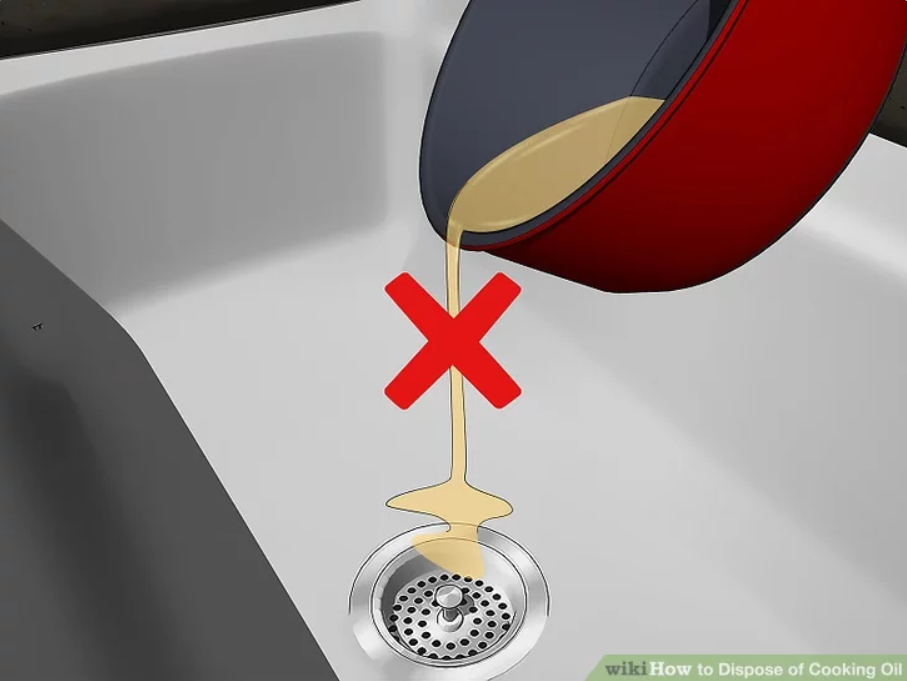 6. Do not pour the oil down your sink.
6. Do not pour the oil down your sink.
Never pour any cooking grease down your kitchen sink because it will eventually block the pipes. Diluting the grease with soap or water will not prevent the oil from coating the pipes.
• Seriously clogged pipes can cause flooding and sewage backups, so it's important to never dispose of the oil in the sink.
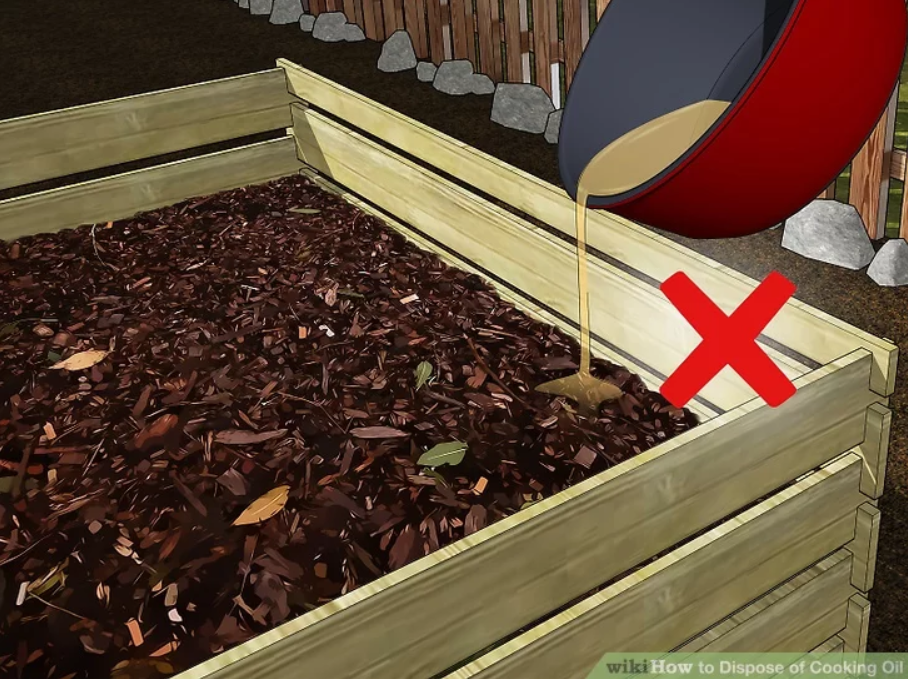 7. Keep cooking oil out of your compost.
7. Keep cooking oil out of your compost.
Don't put cooking oil that was used to fry animal products into your curbside or backyard compost. If you put cooking oil in the compost, it can attract rodents, reduce airflow in the pile, and slow down the composting.
Method 2: Reusing the Oil
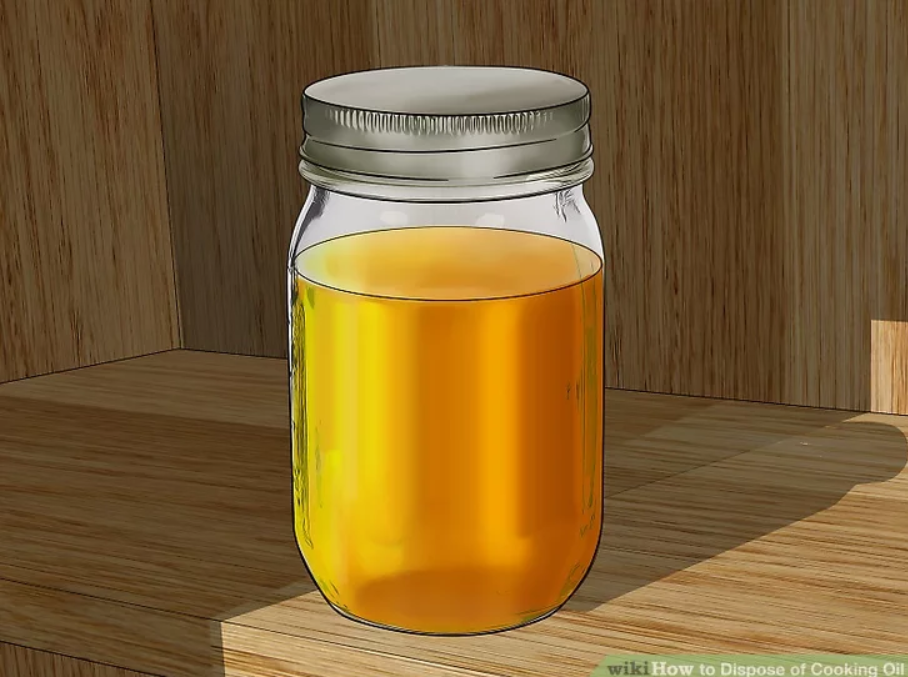 1. Store the oil at room temperature in an airtight container.
1. Store the oil at room temperature in an airtight container.
If you'd like to accumulate a full container of oil before you reuse it, pour the oil into an airtight container. You can store the oil in your pantry at room temperature until you're ready to use it again.
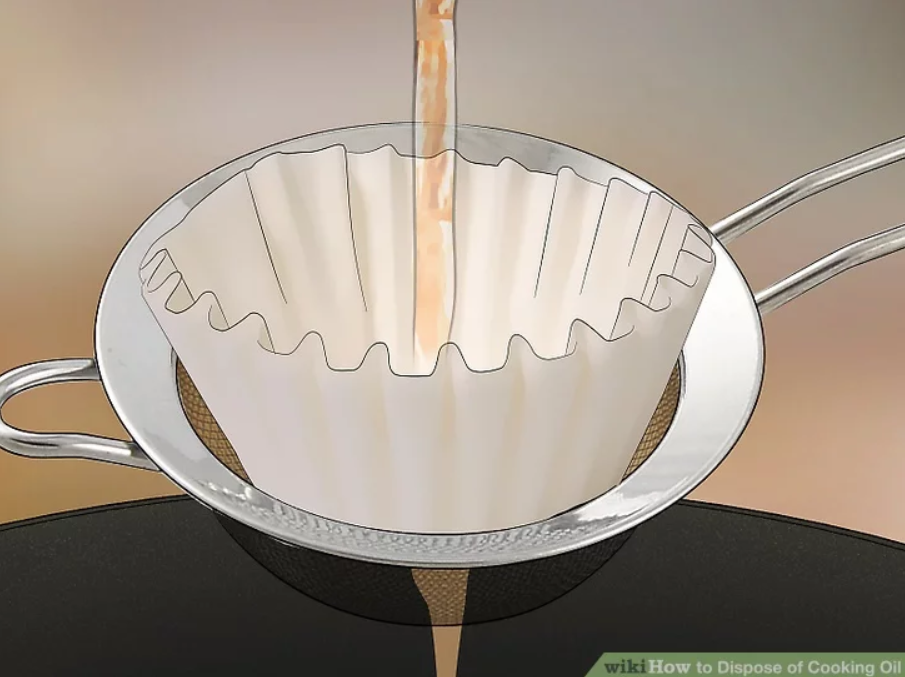 2. Filter the oil through a coffee filter before using it again.
2. Filter the oil through a coffee filter before using it again.
Place a coffee filter over the top of the container holding the oil. Secure the filter with a rubber band and slowly pour the oil through the filter. This will trap any solids so you're left with clearer oil.
• Food particles in the oil can make it rancid or encourage mold to grow.
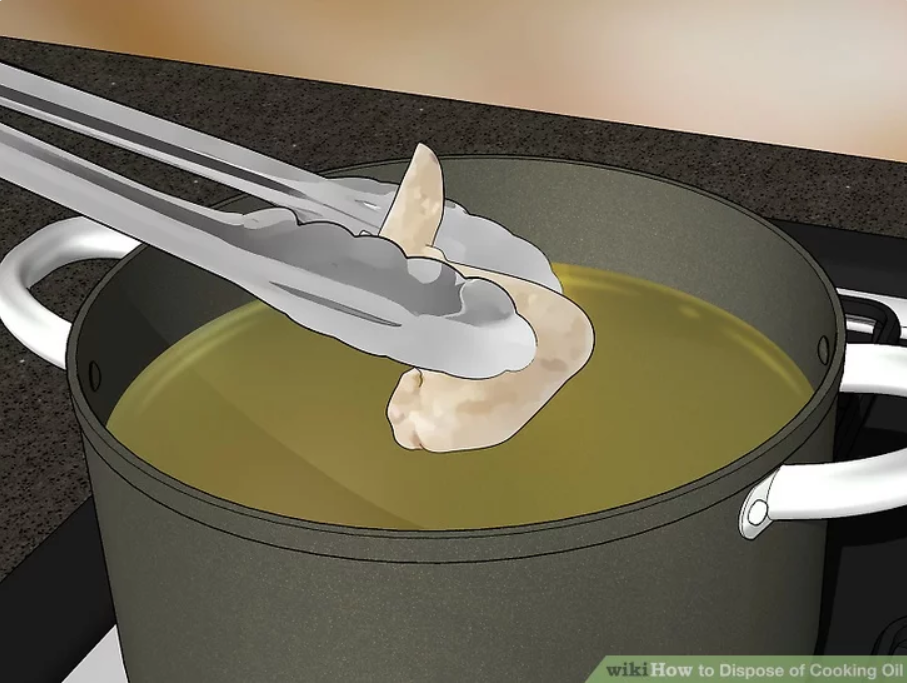 3. Reuse the oil to fry more food.
3. Reuse the oil to fry more food.
You can fry another batch of food as long as you fry a similar food since the cooking oil has already taken on the flavor of the food you fried in it. For example, if you fried chicken in the oil, avoid frying cider donuts in it. If you fried foods that were coated or breaded, you may have a harder time removing the fried bits and flavor from the oil.
• Frying vegetables usually helps the oil keep a neutral flavor, so it's easiest to reuse this cooking oil.
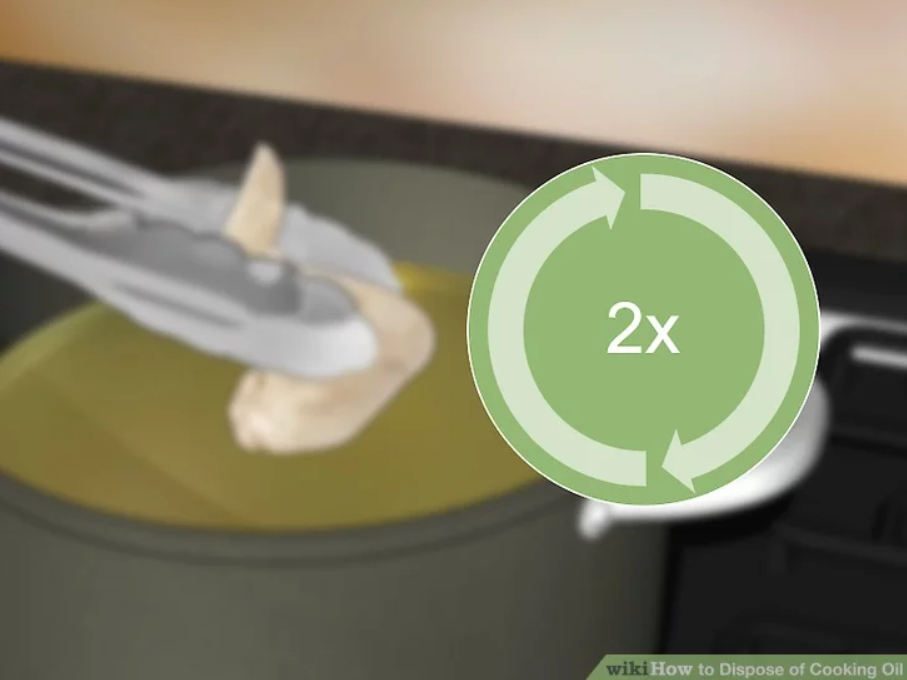 4. Avoid using the oil more than 2 times.
4. Avoid using the oil more than 2 times.
If you've filtered the oil and stored it properly, you can reuse cooking oil a few times. Check the oil before you use it and discard any oil that's cloudy, foamy, or smells bad. Never mix different types of cooking oil and dispose of the oil after 1 or 2 uses.
• Reusing the oil more than 2 times can reduce the oil's smoke point, so it burns easier. It can also cause the fat to release damaging free-radicals and trans-unsaturated fatty acids.
Method 3: Recycling the Oil
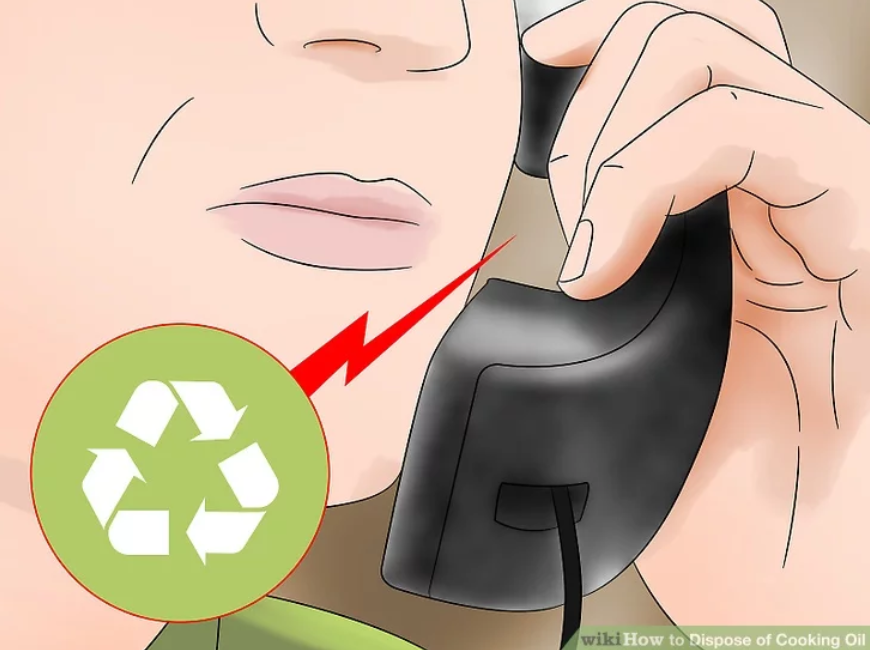 1. Contact your city about a recycling program.
1. Contact your city about a recycling program.
Call or check your local government's website about setting out used cooking oil for pick up. Some trash companies may even offer bins that you can set out for their collection. Your local fire department might also accept used cooking oil.
• Your city may offer a grease pick up once or twice a year such as after Thanksgiving. Check with your city to learn about pick-up dates for the year.
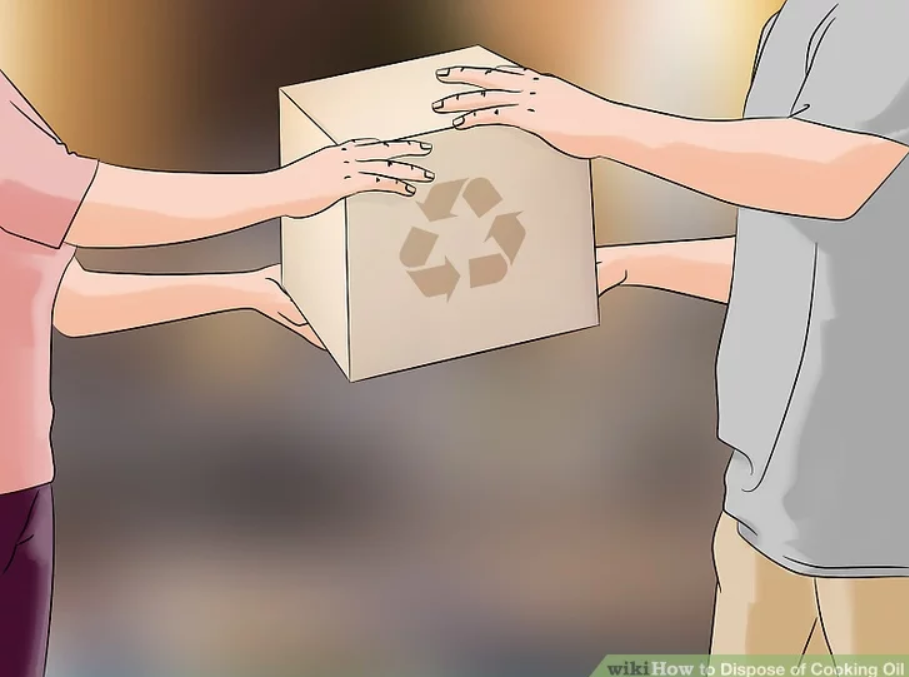 2. Donate the cooking oil.
2. Donate the cooking oil.
Check with local restaurants or recycling programs in your area to see if you can give them your used cooking oil. Companies can produce biodiesel to power their cars or businesses. In order to find an oil drop off location, run an internet search with the line “cooking oil donation [Name of Your City].”
• In some cases, your cooking oil donation can be tax-deductible.
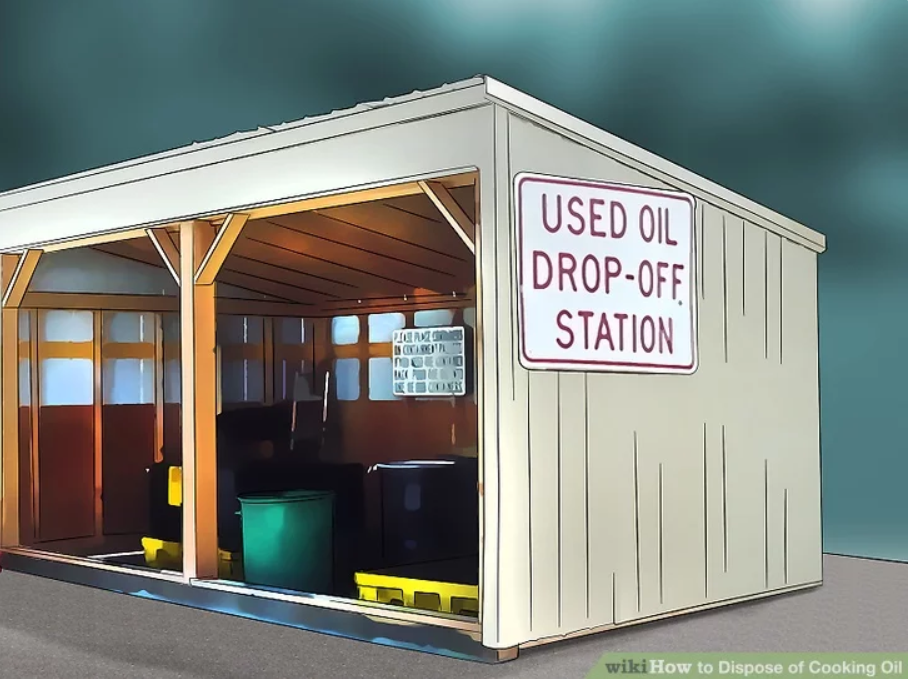 3. Recycle any type of cooking oil.
3. Recycle any type of cooking oil.
Most recycling centers can use any type of cooking oil to make biodiesel. Check with the center before dropping off your donation and avoid mixing your cooking oil with any other liquids.
• Some recycling centers have bins that you can directly pour the oil into.
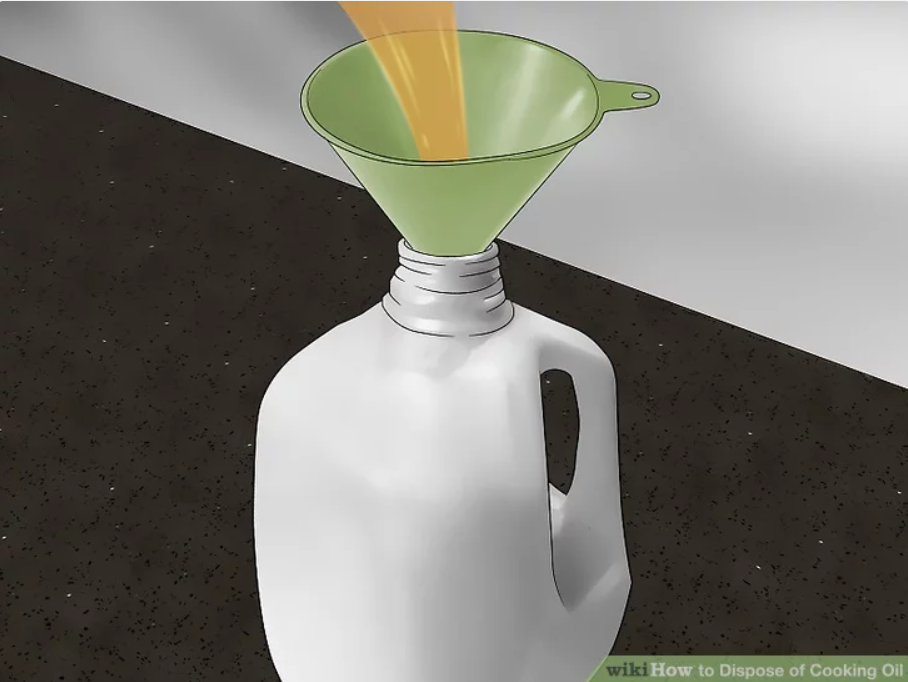 4. Store the cooking oil in a container until you're ready to recycle it.
4. Store the cooking oil in a container until you're ready to recycle it.
Pour the cooled cooking oil into a storage container with a sealable lid. Choose a sturdy container such as a plastic jar which won't shatter if it's dropped. Keep the oil at room temperature until you're ready to drop it off at a recycling center or place it at the curb for pick up.